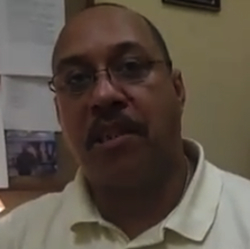 Last month, I sat down with my friend Clarence Adams Sr. to discuss the current state of homelessness in New Orleans, LA. Mr. Adams is currently the Administrator at Ozanam Inn, a homeless shelter for men, where he has worked for the past sixteen years. In this video, Mr Adams discusses the definition of "homeless," and the way Ozanam works to make homeless people Whole from a holistic perspective, including programs that go beyond just serving meals.
Last month, I sat down with my friend Clarence Adams Sr. to discuss the current state of homelessness in New Orleans, LA. Mr. Adams is currently the Administrator at Ozanam Inn, a homeless shelter for men, where he has worked for the past sixteen years. In this video, Mr Adams discusses the definition of "homeless," and the way Ozanam works to make homeless people Whole from a holistic perspective, including programs that go beyond just serving meals.